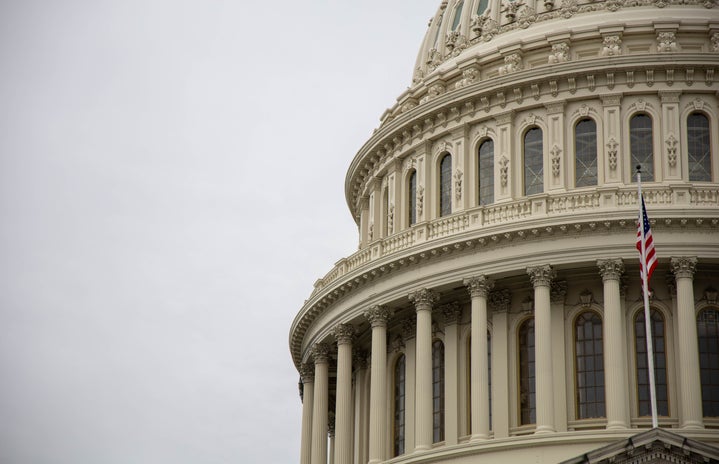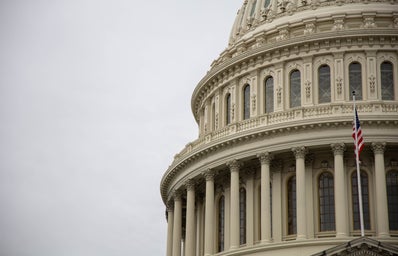Over fall break, I had the unique opportunity to attend the Ignatian Family Teach-in for Justice (IFTJ) in Washington, D.C. with Saint Louis University Campus Ministry. IFTJ is an annual conference hosted to honor and commemorate six Jesuits and their companions who were murdered on Nov. 16, 1989, in El Salvador for speaking up against political corruption.
It is chilling to know that they were killed on the campus of the Jesuit university, Universidad Centroamericana (UCA) in San Salvator, simply for speaking up about human rights violations and political corruption. The conference aims to honor their legacy and also explore the intersection of faith and justice through a Catholic lens.
The conference features different speakers and events, but my favorite part was the last day, Advocacy Day. For Advocacy Day, students are able to research different topics, like environmental policy, immigration rights and criminal justice, and present their findings to legislative correspondents and aides at Capitol Hill.
As a criminal justice minor, I’m very interested in reforming the criminal legal system and creating meaningful strategies to reduce recidivism. I specifically chose to research and advocate for HB 5721, the “Rape Kit Backlog Progress Act of 2023.” This bipartisan bill addresses the unfortunate influx of unprocessed rape kits in forensic testing centers and creates accountability in local jurisdictions for these kits to be processed and uploaded.
During my research for this bill, I discovered some shocking facts about the widespread issue of rape kit backlog. According to The National Institute of Justice, there are an estimated 100,000 unprocessed rape kits nationwide. In addition, the Rape, Abuse, and Incest National Network states that 975 out of every 1,000 sexual assaults remain unprosecuted. It was disheartening to learn more about this issue, but also felt very meaningful to advocate for change.
Alongside Advocacy Day, there were also many discussions and panels at IFTJ. The first session I went to was about the death penalty. It was hosted by a non-profit called the Catholic Mobilizing Network. At the panel, a survivor of death row and a priest who witnesses executions both spoke. It was a very humbling experience. I left the panel with a pit in my stomach but I’m glad I went because it offered me new perspectives and hope for how to combat the death penalty in America. However, the panel was incredibly insightful in reminding high school and college students what they can do to help. For example, even though President Joe Biden will be leaving office soon, he still has time to pardon the individuals currently on federal death row. During the panel, speakers presented audience members with a petition to remind President Biden of his campaign promises to decrease the implementation of the death penalty.
I also attended a literature session titled “Mysticism for The Gays and The Girls.” The session was hosted by a Catholic author named Shannon Evans, who wrote The Mystics Would Like A Word: Six Women Who Met God and Found A Spirituality For Today. Her book discusses women throughout Catholic history who helped shape modern-day Catholic social teaching and spirituality. Similarly, in her discussion at IFTJ, she analyzed how Christianity can accept womanhood and LGBTQ+ identities. Her talk was refreshing since she was unapologetically herself and very honest with the audience. While I haven’t read her book yet, I look forward to buying a copy and potentially learning more.
Alongside the unique opportunities this trip provided, it was also nice to have some time to relax and get to know the D.C. area better. For the conference, we primarily stayed in DuPont Circle. However, my friends and I utilized the metro to visit popular tourist spots, like the National History Museum and the National Gallery. We also visited The Wharf and tried Gordon Ramsey’s fish and chips restaurant. I had a lot of fun shopping and checking out local restaurants and coffee shops. D.C. was particularly beautiful during autumn. I hope I can visit again at some point!
This experience taught me many valuable lessons. I’m thankful I tried something new by attending IFTJ.
There is more common ground than you think
During Advocacy Day, we often met with the offices of Senators and Representatives, with which I do not politically agree. However, I quickly realized there was more common ground than I thought. Legislative aides were eager to hear about our ideas and perspectives. They didn’t interrupt us or argue with us. They also asked very meaningful questions. Even though our political world is very polarized, we are all human and we have more in common than we think.
It is okay to be emotional
I feel very passionately about HB 5721, The Rape Kit Backlog Progress Act, and it is something that makes me very emotional to think about. Even though I feel embarrassed being emotional in front of others, it is okay to cry and get upset about some of these issues. In politics, we often talk about some dark and difficult topics. It is only natural to feel uncomfortable and emotional during some of these conversations.
Your group is there to support you
At the end of the day, we can’t be an expert in everything. Luckily, during IFTJ, you are paired with a research group and an advocacy group to help. These groups are such an important part of the experience because they have your back no matter what. Having a group helped me feel less stressed and also branch out and make new friends.
Progress is not linear or automatic
While it would be nice to see these social changes enacted immediately, the legislative policymaking process is long and tedious. Bills need to be heard by the House and Senate and signed by the President. It is sometimes hard to see change enacted as quickly as we would like. Change is not linear and it can take multiple solutions to solve a societal problem. It is important to be patient and understand that even small levels of societal change still contribute to the greater good.
Even though I was nervous at first, I learned how to speak up for myself and others at IFTJ. I also learned about different topics I would not have normally had the opportunity to hear about. I highly recommend going to IFTJ if you’re a SLU student interested in policy or theology. It was a very emotionally fulfilling experience for me and it can be for you too!


